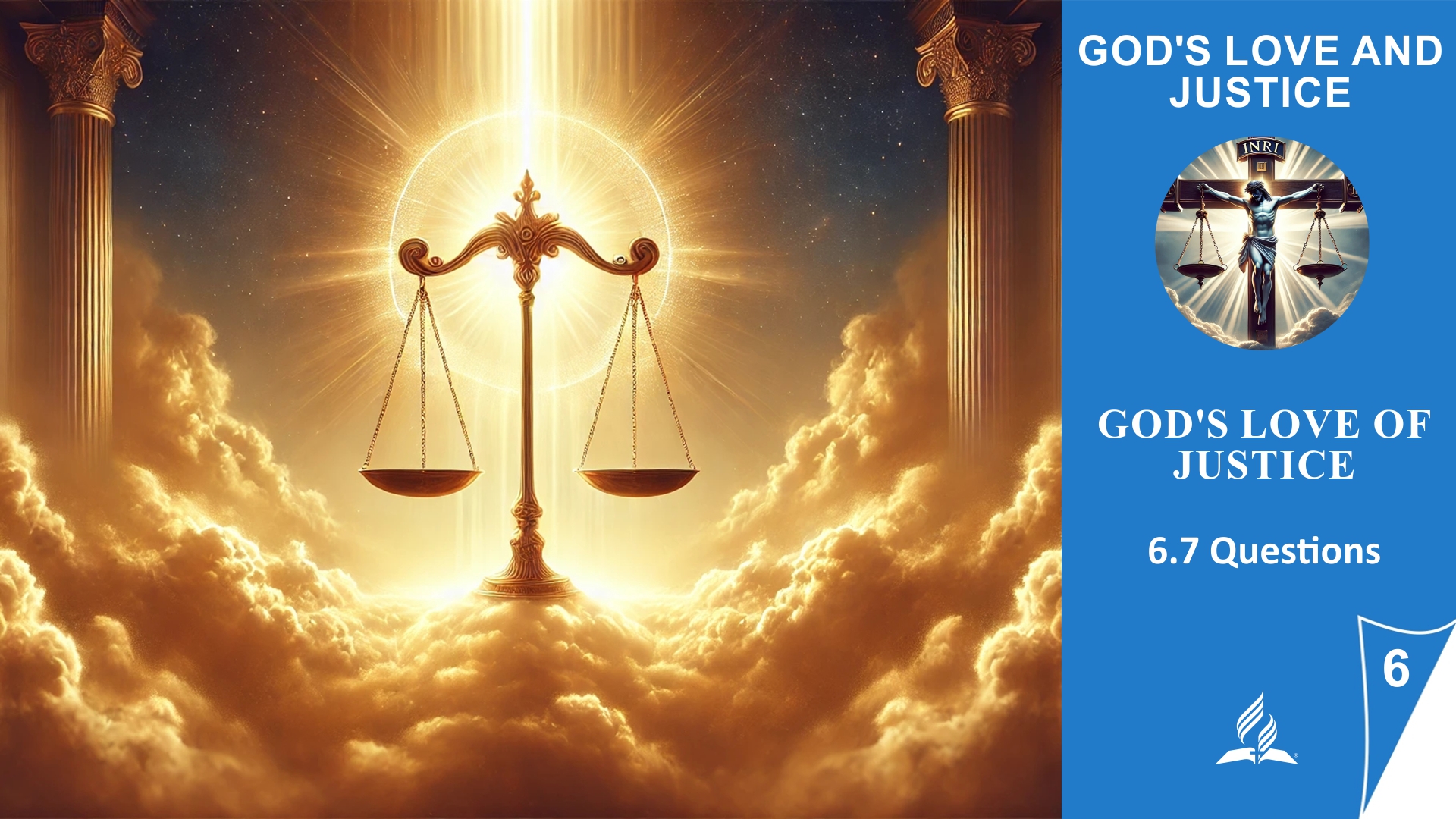



1.Why is it very important to recognize that God’s glory is connected with His goodness? How does this correct a theology of glory that emphasizes sheer power without highlighting God’s love and nature?
It is of great importance to recognize that God’s glory is inseparably connected with His goodness because this reflects the true nature of God and corrects a one-sided view of divine power.
-
God’s Glory Reveals His Nature
In the Bible, God’s glory is often associated with His love, faithfulness, and justice. In Exodus 33:18–19, Moses asks God to show him His glory, and God responds by passing His goodness before Moses. This demonstrates that God’s glory is not found solely in His omnipotence but primarily in His moral perfection, His grace, and faithfulness.
-
Correcting a Distorted Theology of Glory
A theology that equates God’s glory solely with power and exaltation runs the risk of overlooking His love and mercy. A view of God based purely on power can lead to a distant, fear-inducing understanding that misrepresents God’s deepest intentions. However, the Bible shows that God’s glory is most clearly revealed in His self-giving (for example, on the Cross in John 1:14 and Philippians 2:6–8).
-
God’s Love as the Core of His Glory
In John 17:24, Jesus asks the Father that His followers may see His glory—a glory that is manifested in the Father’s love for Him and for people. This underlines that God’s glory is not one of cold power but is rooted in the warmth of His love and His nature.
-
God’s Justice and Mercy as a Unified Whole
Psalm 85:10 describes the perfect harmony between justice and love: “Mercy and truth have met together; righteousness and peace have kissed.” God never acts in power apart from His goodness. His glory is displayed in the way He unites justice with mercy.
Conclusion:
God’s glory must not be reduced to raw power or distant exaltation. True glory lies in the inseparable connection of power, love, justice, and goodness. This corrects a theology that emphasizes power alone without taking into account the loving nature of God. An understanding of God’s glory that includes His goodness leads to a deeper, more trusting relationship with Him and to an honest imitation of His love and justice in our own lives.
2.Have you ever questioned God’s goodness? Do you know someone who has questioned God’s goodness because of the way alleged followers of God sometimes behave, or simply because of all the evil in the world? How have you resolved this question for yourself, and how can you help someone who is struggling with the question of God’s goodness? See next week’s lesson.
Yes, many people—even believing Christians—have at some point in their lives questioned God’s goodness. It is an honest and understandable reaction to suffering, injustice, and the evil in the world. These doubts can be intensified by personal misfortunes, the pain of others, or the behavior of people who claim to be followers of God.
-
The Challenge: Why Does God Allow This?
Often the question of God’s goodness arises from experiences of suffering or the observation of injustice. Perhaps we know people who have turned away from God because they experienced Christians acting unlovingly or hypocritically. Others question God’s goodness because they see wars, diseases, and natural disasters seemingly occurring without hindrance.
-
How Have I Resolved This Question for Myself?
There is no simple answer, but several biblical truths have helped me:
-
God’s Goodness Is Revealed on the Cross: In Romans 5:8 it says, “But God demonstrates his own love for us in this: While we were still sinners, Christ died for us.” Even if we do not always understand the evil, the Cross shows us that God is not indifferent to our suffering. He Himself suffered to redeem us.
-
God Often Acts Differently Than We Expect: In Isaiah 55:8–9, God states that His thoughts are higher than ours. Just because we do not immediately comprehend God’s actions does not mean that He is not good.
-
Evil Is Real, But Not Eternal: Revelation 21:4 promises that God will one day put an end to all suffering. Evil is a consequence of a fallen world, but God has a plan to ultimately defeat it.
-
-
How Can We Help Someone Who Struggles with God’s Goodness?
-
Listen Instead of Giving Hasty Answers: People who are suffering often need empathy rather than theological arguments.
-
Point Them to Jesus: He is the visible proof of God’s love.
-
Explain the Reality of a Fallen World: Evil is not God’s will but a consequence of sin. However, God acts even in the midst of evil.
-
Give Them Hope: God is faithful, even if we do not always feel it. His goodness often becomes evident only in hindsight.
-
Conclusion:
The question of God’s goodness is profound, but it can be answered through the Bible and personal experience. God is neither distant nor indifferent—His love is real, even if we do not always immediately see it.
3.Discuss the answer to the question in Monday’s session. How does the reality of the Great Battle help us understand all the evil that now exists?
The reality of the Great Battle helps us to better understand the evil in the world by providing a biblical perspective on suffering and injustice. The Great Battle is the cosmic struggle between God and Satan, between justice and sin, between light and darkness. This conflict began in heaven (Revelation 12:7–9) and continues on earth, where people must choose daily between good and evil.
-
The Origin of Evil
One of the central questions many people ask is: “If God is good, why is there so much suffering?”
The Great Battle explains that evil does not originate from God. Satan, originally an angel of light, chose to rebel against God (Isaiah 14:12–14; Ezekiel 28:12–17). He introduced doubt about God’s character and claimed that God was neither just nor loving. This rebellion spread so that even people in Genesis 3 succumbed to temptation and turned against God.
-
Why Does God Allow Evil?
God could have immediately destroyed evil, but doing so would call His love and justice into question. Love requires freedom, and God does not force anyone to follow Him. Instead, He allows the Great Battle to be visible for a time so that the universe may come to see that God’s ways are just.
Scripture:
“The Lord is not slow in keeping his promise… but is patient with you, not wanting anyone to perish, but everyone to come to repentance.” (2 Peter 3:9)
-
How Does the Great Battle Affect Our Lives?
Every person is involved in this cosmic conflict. Our daily decisions—how we act, whether we stand for truth and justice or yield to evil—reflect this battle. Ephesians 6:12 reminds us that our struggle is not against flesh and blood but against the forces of darkness.
Everyday Examples:
-
The Evil in the World: Wars, injustice, natural disasters—these are consequences of a fallen world, not God’s will.
-
Attacks on Faith: Christians experience trials as Satan does everything he can to separate them from God.
-
God’s Victory: Despite the ongoing battle, God’s victory is assured. Revelation 21:4 promises a new earth without suffering and death.
-
Hope in the Great Battle
Although evil is present at the moment, we can know that Jesus has already won the victory. John 16:33 says, “In this world you will have trouble. But take heart! I have overcome the world.” Through Jesus’ death and resurrection, the outcome of the battle is already decided. Our task is to hold fast to God’s truth and justice and to trust in His ultimate redemption.
Conclusion:
The Great Battle helps us understand why evil exists without calling God’s goodness into question. Satan fights against God and draws people along with him, but God will ultimately bring about justice. We are in the midst of this conflict, yet Jesus has already triumphed—and we can live in that victory by trusting God and standing up for love and truth.
(Visited 24 times, 1 visits today)




















